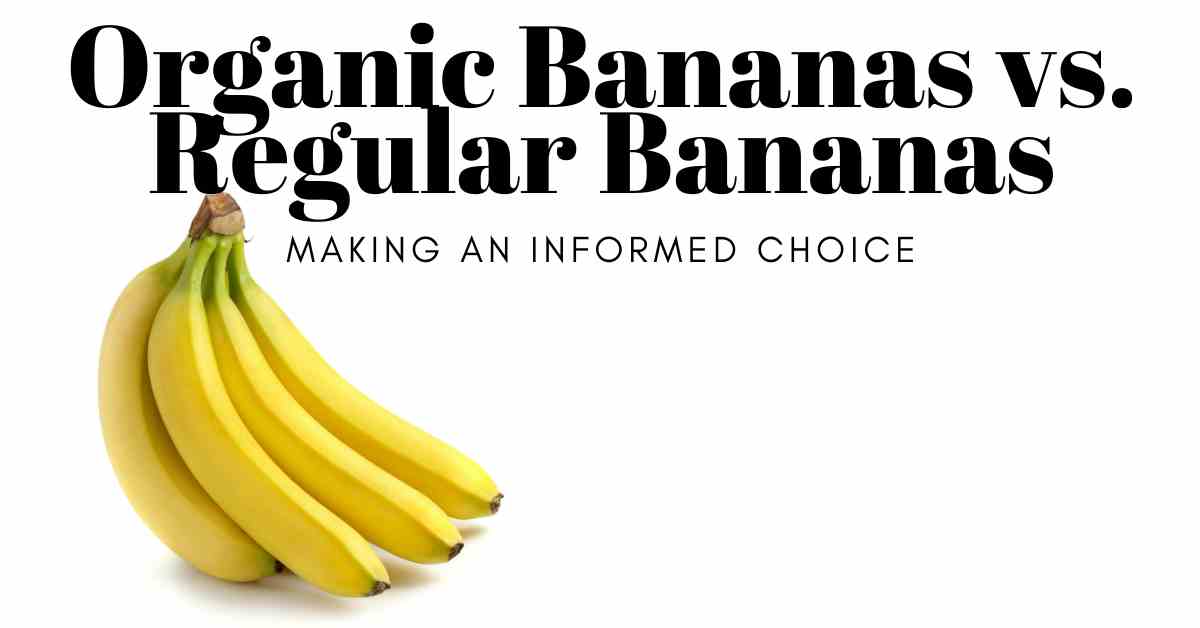Organic Bananas vs. Regular Bananas: Making an Informed Choice
I’ve often contemplated whether it’s preferable to opt for organic bananas or regular non-organic . Bananas and other fruits and veggies with thicker skin don’t usually appear on the EWG’s “Dirty Dozen” lisonest, which advises consumers to purchase organic produce to mitigate pesticide exposure. So I’m left wondering about the advantages of choosing organic. As is my usual practice when investigating a subject that interests me, I’ll share my discoveries in this post for anyone else who might be seeking more information too!
What Are Organic Bananas?
Organic bananas are grown without synthetic fertilizers, pesticides, or genetically modified organisms (GMOs). Instead, organic farmers use natural methods to protect their crops, such as rotating crops, companion planting, and using beneficial insects to control pests.
Benefits of Organic Bananas
One of the main benefits of organic bananas is that they are grown without the use of synthetic pesticides, which can be harmful to both the environment and our health. Organic farming also supports healthy soil and biodiversity, which can have long-term benefits for the planet. Some people state organic bananas are more nutritious than conventional ones however there is not much scientific evidence about that.
What Are Non-Organic Bananas?
Non-organic bananas, also known as conventionally grown bananas aka regular bananas, are grown using synthetic fertilizers, pesticides, and other chemicals. This method of farming is often used to increase yields and reduce costs, but it can have negative impacts on the environment and the health of workers exposed to pesticides.
Conventional farming practices can lead to soil erosion, water pollution, and a loss of biodiversity. Additionally, the use of synthetic pesticides can expose workers and consumers to harmful chemicals.
Why Are Organic Bananas More Expensive?
Organic bananas are typically more expensive than non-organic bananas because organic farming methods tend to be more labor-intensive and require more time and resources. Organic farmers also incur higher costs for certification, inspections, and complying with organic farming regulations. Additionally, organic farms may have lower yields due to the absence of synthetic fertilizers and pesticides, which can increase the cost per unit of production. These factors contribute to the higher price point of organic bananas.
Is It Worth Buying Organic Bananas?
So, is it worth buying organic bananas? The answer depends on your priorities. If you’re concerned about the environment, and supporting sustainable farming practices, then organic bananas may be the way to go. However, if cost is a concern, non-organic bananas may be a better choice.
Final Thoughts
The decision of whether to choose organic or non-organic bananas ultimately comes down to your personal values and priorities. While organic bananas may offer benefits such as supporting sustainable farming practices and avoiding exposure to harmful chemicals, they can also come at a higher cost. On the other hand, non-organic bananas may be more affordable but can have negative impacts on the environment and the health of workers exposed to pesticides. Regardless of which option you choose, and enjoy all the benefits that this beloved fruit has to offer!







